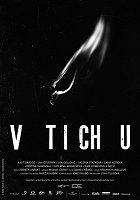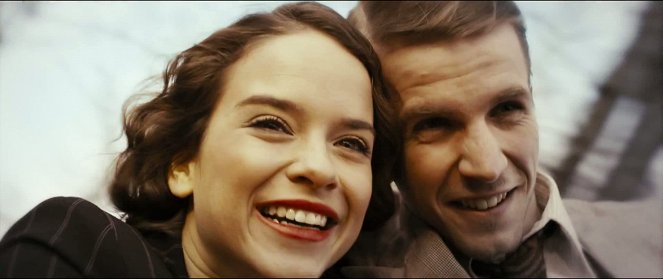Regie:
Zdeněk JiráskýDrehbuch:
Zdeněk JiráskýKamera:
Michal ČernýMusik:
Martin HasákBesetzung:
Judit Pecháček, Ján Gallovič, Jan Čtvrtník, Kristína Svarinská, Ladislav Hrušovský, Dana Košická, Ondřej Rychlý, Jan Komínek, Evženie Pfeifferová (mehr)Inhalte(1)
The 1930s and 1940s left a devastating trace on the world which affected every social class, regardless of their education, beliefs, gender or race. Fascist Germany and its ideology began its work of destruction in 1933. Many artists fell into disfavour, they were barred from working in their profession and were persecuted. Fascist laws disqualified so-called "non-Aryan" artists in Germany and these norms were subsequently applied in all the European countries occupied by Germany. "In Silence" depicts the fates of five Jewish musicians and performers whose suffering in concentration camps or even their fear of inevitable death were alleviated by the piano and music. Karol Elbert, Alica Flachová – Pastorová, Edith Kraus, Arthur Chitz and Jozef Weiss – these are names fated to remain forgotten and whose talent was to be erased forever from the cultural awareness. The film reveals the happy and carefree lives of the protagonists in a stylised manner, with precise film aesthetics and a strong musical component, in contrast with the humiliating, painful and most difficult part of their lives. (Verleiher-Text)
(mehr)Kritiken (2)
Do you think that the topic of Judaism in Music cannot appeal to you? The opposite is true. Zdeněk Jiráský's team found a new way to tell, to address, and to revive human stories decided on by a seemingly banal list. It would be futile to enumerate the individual pros. The only thing worth doing is to applaud the screen.
()
Nach den großartigen Poupatach ist das Maß der Enttäuschung fast greifbar. Der Film hat keine Handlung und besteht nur aus Szenen aus Konzentrations- und Arbeitslagern, denen zuvor erleuchtete und naiv warme Szenen aus der Zeit vor dem Krieg vorausgegangen waren, als alle glücklich waren, lächelten und alles optimistisch und fröhlich war. Die knappen sechs Juden, deren Schicksal wir verfolgen, haben so gut wie keine Exposition (eine Titel neben ihrem Namen und eine Beschreibung ihres Berufs reicht wirklich nicht aus) und der Film entfremdet sie noch mehr, da keiner von ihnen während des gesamten Films auch nur ein Wort sagt - abgesehen von Schreien und Singen finden alle Dialoge und Monologe ausschließlich in Voice-Overs statt. Genauso wie am Anfang ein Lexikon jüdischer Künstler gedruckt wird, präsentiert Zdeněk Jiráský in seinem Film ein Lexikon aller möglichen Leiden, die die Menschen im Konzentrationslager durchgemacht haben, aber er tut dies unglaublich billig (es ist wirklich alles da, einschließlich eines Gehängten, eines weinenden kleinen Mädchens, eines getöteten Neugeborenen, trauriger Hundeaugen...) und in seinem eifrigen Bemühen, Tränen beim Zuschauer hervorzurufen, scheitert er auf ganzer Linie.
()

